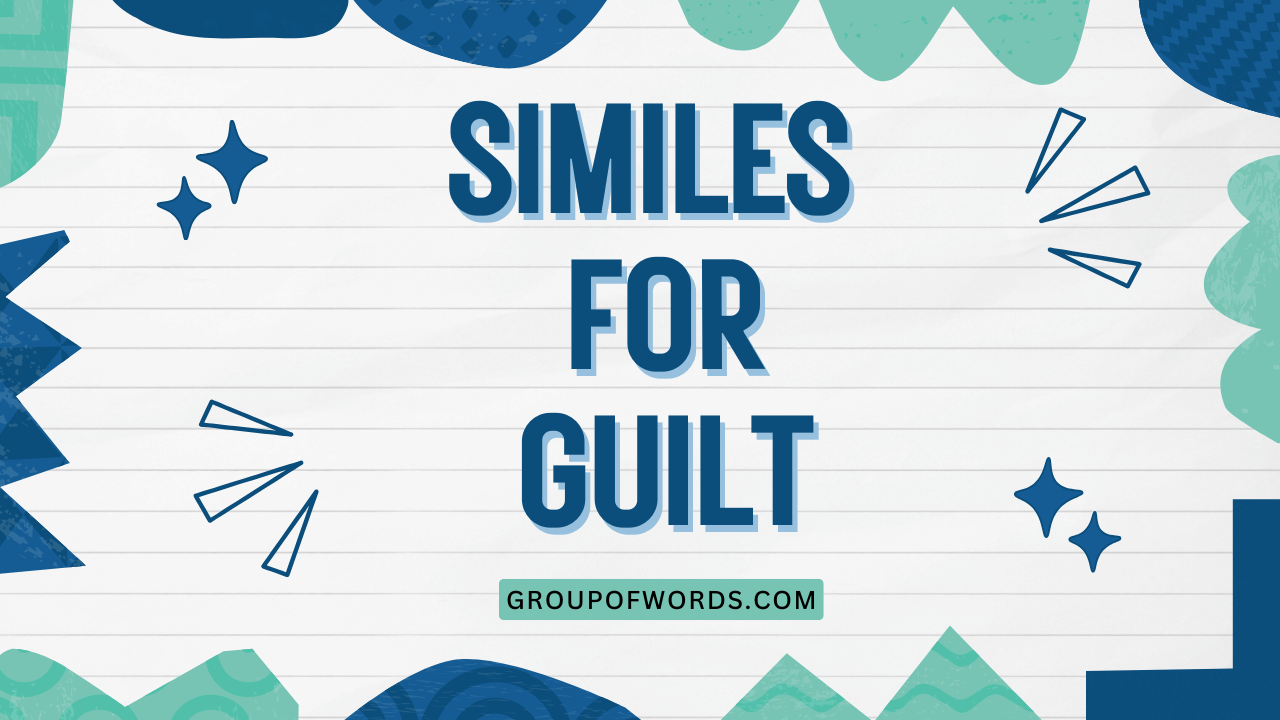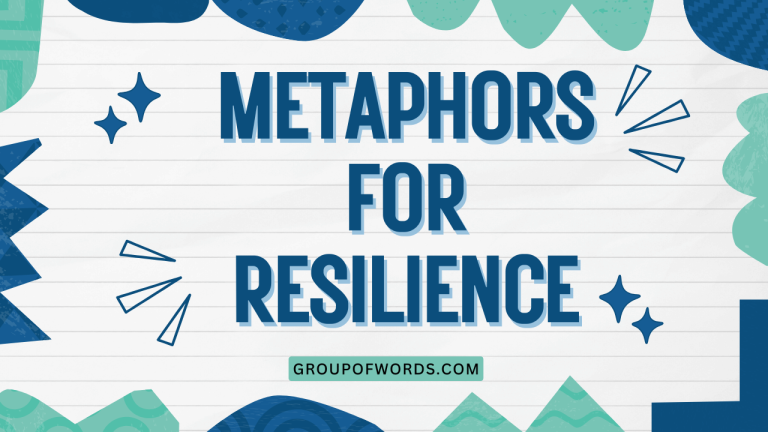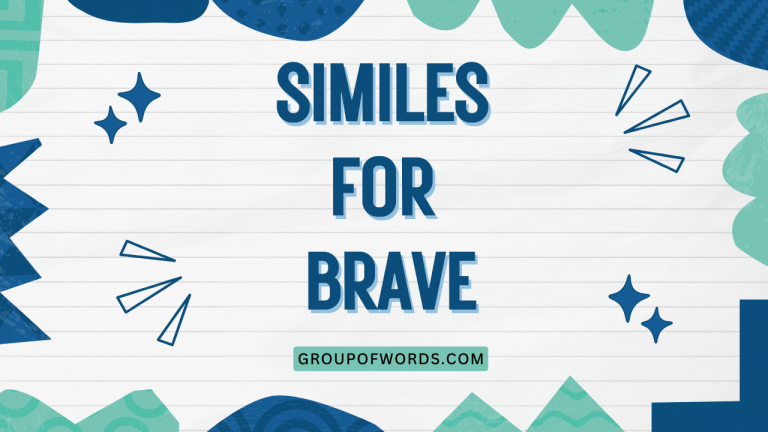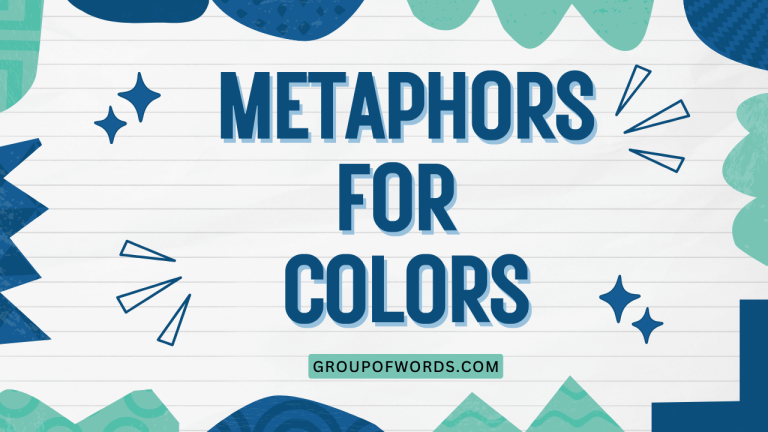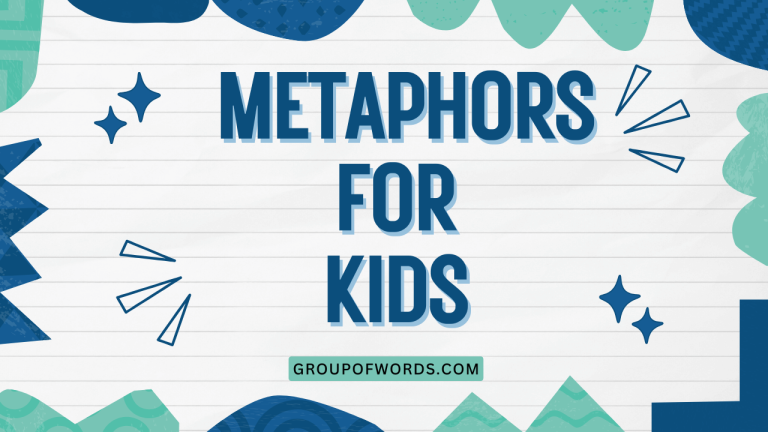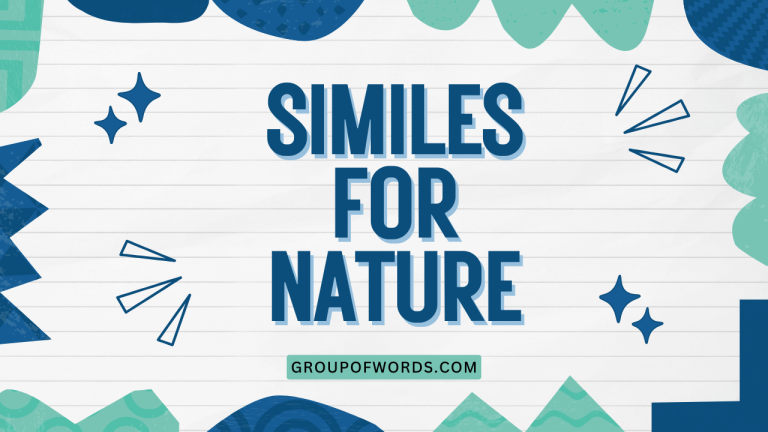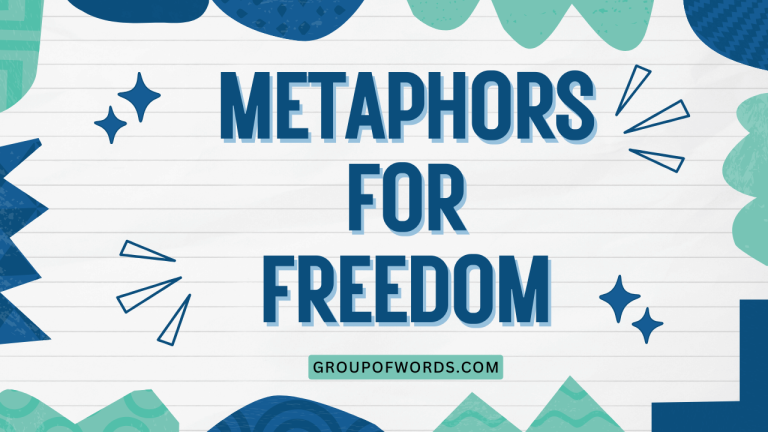Similes for Guilt: A Comprehensive Guide
Guilt, a complex and often overwhelming emotion, is a common human experience. Understanding how to express and recognize guilt through figurative language, particularly similes, can greatly enhance our communication skills and deepen our comprehension of literature and everyday conversations.
This article delves into the world of similes used to describe guilt, providing a comprehensive guide for English language learners and anyone interested in refining their understanding of this powerful emotion. Whether you are a student, a writer, or simply someone who wants to improve their vocabulary, this exploration of similes for guilt will prove invaluable.
Table of Contents
- Introduction
- Definition of Simile and Guilt
- Structural Breakdown of Similes for Guilt
- Types of Similes for Guilt
- Examples of Similes for Guilt
- Usage Rules for Similes of Guilt
- Common Mistakes When Using Similes for Guilt
- Practice Exercises
- Advanced Topics
- Frequently Asked Questions
- Conclusion
Introduction
Similes are powerful tools in the English language, enabling us to draw vivid comparisons and paint evocative pictures with words. When it comes to complex emotions like guilt, similes can be particularly effective in capturing the nuances and intensity of the feeling.
This article aims to provide a thorough understanding of how similes are used to express guilt, offering numerous examples and practical exercises to help you master this aspect of figurative language. By exploring the different ways guilt can be compared to other things, you will be able to enhance your writing, speaking, and overall understanding of the English language.
Definition of Simile and Guilt
Before diving into specific examples, it’s crucial to define the key terms: simile and guilt. A simile is a figure of speech that compares two unlike things using “like” or “as.” It’s a way to make a description more emphatic or vivid. Similes are used to create a connection between something familiar and something less familiar, allowing the reader or listener to understand the latter more easily.
Guilt, on the other hand, is an emotional experience that occurs when a person believes or realizes—accurately or not—that they have violated a moral standard, or have done something wrong and feels responsible for that wrong. It often involves feelings of regret, remorse, and self-reproach. Guilt can be a powerful motivator for positive change, but it can also be debilitating if left unaddressed. Understanding the nuances of guilt and how it’s expressed is essential for effective communication and emotional intelligence.
Structural Breakdown of Similes for Guilt
Similes for guilt typically follow a simple structure: Guilt + is/feels + like/as + [Something Else]. The “something else” is the key element, as it provides the comparison that makes the simile effective. This “something else” can be a physical object, a sensation, an animal, or even another emotion. The choice of comparison depends on the specific aspect of guilt the speaker or writer wants to emphasize.
For example, in the simile “Guilt feels like a heavy weight,” the comparison is to a physical weight. This emphasizes the burden and oppressiveness of guilt.
Similarly, “Guilt is like a stain that won’t wash away” compares guilt to a persistent mark, highlighting its enduring nature. The effectiveness of a simile depends on how well the comparison resonates with the audience and how accurately it captures the essence of the emotion.
Types of Similes for Guilt
Similes for guilt can be categorized based on the type of comparison they make. Here are some common categories:
- Guilt as a Physical Burden: These similes compare guilt to something heavy or restrictive, emphasizing its oppressive nature.
- Guilt as a Mark or Stain: These similes compare guilt to something that taints or blemishes, highlighting its lasting impact.
- Guilt as an Illness: These similes compare guilt to a disease or ailment, emphasizing its debilitating effects.
- Guilt as Confinement: These similes compare guilt to imprisonment, highlighting its restrictive and isolating nature.
- Guilt as an Animal: These similes compare guilt to an animal, emphasizing its raw, instinctual nature.
Each category provides a different perspective on guilt, allowing for a nuanced and expressive portrayal of the emotion. By understanding these categories, you can better appreciate the range of similes available for describing guilt and choose the most appropriate one for your needs.
Examples of Similes for Guilt
This section provides extensive examples of similes for guilt, organized by category. Each example is designed to illustrate the specific aspect of guilt being emphasized and to provide a clear understanding of how similes can be used to express this complex emotion.
Guilt as a Weight
Similes that compare guilt to a weight emphasize the burden and oppressiveness of the emotion. These similes often evoke a sense of heaviness, restriction, and difficulty in moving forward.
The following table provides several examples:
| Simile | Explanation |
|---|---|
| Guilt felt like a leaden weight in his chest. | Emphasizes the heavy, suffocating feeling of guilt. |
| Her guilt was as heavy as a ton of bricks. | Highlights the immense burden of her wrongdoing. |
| The guilt hung over him like a dark, heavy cloud. | Compares guilt to a looming, oppressive presence. |
| It felt like carrying the weight of the world on his shoulders, a burden of guilt. | Emphasizes the all-encompassing and overwhelming nature of guilt. |
| His guilt was as weighty as a stone in his stomach. | Highlights the physical discomfort and unease caused by guilt. |
| She carried her guilt like a heavy backpack, always weighing her down. | Emphasizes the constant burden and restriction imposed by guilt. |
| The guilt sat on him like a physical weight, making it hard to breathe. | Highlights the physical manifestation of guilt, affecting even breathing. |
| His conscience, burdened by guilt, felt like a heavy anchor dragging behind him. | Emphasizes the dragging, hindering effect of guilt on his progress. |
| The guilt felt like a mountain he could never climb. | Highlights the insurmountable and overwhelming nature of guilt. |
| Guilt pressed down on her, as heavy as a physical blow. | Emphasizes the forceful and impactful nature of guilt. |
| His guilt was as heavy as a coffin lid, sealing him in sorrow. | Compares guilt to something that traps and isolates him. |
| The weight of guilt felt like chains binding his soul. | Highlights the restrictive and imprisoning nature of guilt. |
| Guilt hung over them like a sword of Damocles, heavy and threatening. | Emphasizes the impending doom and anxiety caused by guilt. |
| His heart was heavy with guilt, like a stone sinking in water. | Highlights the sinking, depressing feeling of guilt. |
| The guilt weighed on her like a wet blanket, smothering her joy. | Emphasizes the suffocating and joy-killing effect of guilt. |
| His secret guilt was a burden, as heavy as a soldier’s pack on a long march. | Highlights the enduring and exhausting nature of guilt. |
| The guilt felt like a ball and chain, hindering his every move. | Emphasizes the restriction and impediment caused by guilt. |
| Guilt felt like an anvil on his chest, crushing him with its weight. | Highlights the crushing and overwhelming nature of guilt. |
| Her guilt was as heavy as a loaded gun, ready to explode with remorse. | Emphasizes the volatile and potentially destructive nature of guilt. |
| He carried his guilt like a sack of rocks, each one a reminder of his failures. | Highlights the constant reminders and burdens associated with guilt. |
| The guilt felt like a concrete block tied to his ankles, preventing him from moving on. | Emphasizes the hindering and immobilizing effect of guilt. |
| Guilt weighed down on her, as heavy as a winter coat in summer. | Highlights the inappropriate and burdensome nature of guilt. |
| His guilt was like a heavy shroud, covering him in darkness and despair. | Emphasizes the suffocating and despair-inducing effect of guilt. |
Guilt as a Stain
Similes that compare guilt to a stain emphasize its lasting and indelible nature. These similes often evoke a sense of contamination, defilement, and difficulty in cleansing oneself.
The following table provides several examples:
| Simile | Explanation |
|---|---|
| Guilt was like a stain that would never wash away. | Emphasizes the permanent and indelible nature of guilt. |
| His conscience was stained with guilt, like a white shirt splattered with ink. | Highlights the defilement and contamination caused by guilt. |
| The guilt left a mark on her soul, as permanent as a tattoo. | Emphasizes the lasting and unremovable nature of guilt. |
| Her reputation was tarnished by guilt, like silver exposed to air. | Highlights the damaging effect of guilt on one’s image. |
| Guilt clung to him like a persistent, unsightly blemish. | Emphasizes the clinging and unattractive nature of guilt. |
| The memory of his actions was like a stain on the fabric of his life. | Highlights the damaging effect of guilt on one’s life story. |
| Her guilt was as visible as a bloodstain on a white carpet. | Emphasizes the obvious and undeniable nature of guilt. |
| He felt as though his soul was permanently marked, like a defaced monument. | Highlights the irreversible damage caused by guilt. |
| Guilt was like a dark shadow, forever following him. | Emphasizes the constant presence and haunting nature of guilt. |
| The guilt left a bitter taste, like poison in his mouth. | Highlights the unpleasant and lingering sensation of guilt. |
| His past mistakes stained his present, like old wine on a new cloth. | Compares guilt to something that contaminates and alters the present. |
| Her conscience was marred by guilt, like a pristine painting slashed with a knife. | Highlights the defacement and damage caused by guilt. |
| The guilt was etched into his memory, like words carved in stone. | Emphasizes the permanent and unforgettable nature of guilt. |
| He felt as though his innocence was forever tainted, like pure water polluted by oil. | Highlights the corruption and defilement of innocence caused by guilt. |
| Guilt left a scar on his heart, as visible as a brand on cattle. | Emphasizes the permanent and identifiable mark of guilt. |
| His secret was a stain on his character, like a blot on a clean page. | Highlights the defilement and damage to one’s character caused by guilt. |
| The guilt clung to her like mud, impossible to scrape off. | Emphasizes the clinging and difficult-to-remove nature of guilt. |
| He felt as though his soul was permanently soiled, like a garment ruined by dirt. | Highlights the defilement and ruin caused by guilt. |
| His guilt was as glaring as a neon sign, impossible to ignore. | Emphasizes the obvious and unavoidable nature of guilt. |
| Her lies left a stain on their relationship, like a crack in a mirror. | Highlights the damage and distortion caused by guilt in relationships. |
| The guilt was an indelible mark on his reputation, like graffiti on a landmark. | Emphasizes the lasting and damaging effect of guilt on one’s reputation. |
| He felt as though his conscience was permanently scarred, like a tree struck by lightning. | Highlights the permanent damage and disruption caused by guilt. |
| His actions left a stain on his legacy, like a shadow over his achievements. | Emphasizes the tarnishing effect of guilt on one’s legacy. |
Guilt as an Illness
Similes that compare guilt to an illness emphasize its debilitating and consuming nature. These similes often evoke a sense of sickness, weakness, and suffering.
The following table provides several examples:
| Simile | Explanation |
|---|---|
| Guilt gnawed at him like a slow-acting poison. | Emphasizes the gradual and destructive effect of guilt. |
| Her conscience was sick with guilt, like a body infected with a disease. | Highlights the debilitating and consuming nature of guilt. |
| The guilt festered in his mind like an untreated wound. | Emphasizes the worsening and spreading effect of guilt. |
| He felt as though his soul was consumed by guilt, like a body ravaged by fever. | Highlights the all-consuming and destructive nature of guilt. |
| Guilt was like a tumor, growing larger and more painful over time. | Emphasizes the increasing and agonizing nature of guilt. |
| Her remorse was a sickness of the heart, weakening her with each passing day. | Highlights the debilitating and weakening effect of guilt on the heart. |
| He felt as though his spirit was infected, like a healthy body invaded by a virus. | Highlights the invasive and corrupting nature of guilt. |
| Guilt was like a persistent cough, always present and irritating. | Emphasizes the constant and bothersome nature of guilt. |
| His conscience was plagued by guilt, like a body tormented by parasites. | Highlights the tormenting and invasive nature of guilt. |
| Guilt ate away at him, like a corrosive acid. | Emphasizes the destructive and consuming effect of guilt. |
| His regret was like a chronic illness, always lurking beneath the surface. | Compares guilt to something that is persistent and underlying. |
| Her heart ached with guilt, like a bone broken and never properly set. | Highlights the painful and unresolved nature of guilt. |
| The guilt was a constant ache, like a toothache that never subsided. | Emphasizes the persistent and irritating nature of guilt. |
| He felt as though his soul was wasting away, like a body suffering from malnutrition. | Highlights the depleting and weakening effect of guilt. |
| Guilt was like a virus, spreading through his thoughts and emotions. | Emphasizes the contagious and pervasive nature of guilt. |
| His conscience was inflamed with guilt, like a wound that refused to heal. | Highlights the painful and persistent inflammation caused by guilt. |
| He felt as though his spirit was slowly dying, like a plant deprived of sunlight. | Highlights the withering and life-draining effect of guilt. |
| Guilt was like a festering sore, oozing with regret and remorse. | Emphasizes the unpleasant and suppurating nature of guilt. |
| His conscience was poisoned by guilt, like a well contaminated with toxins. | Highlights the contamination and corruption caused by guilt. |
| Her guilt was a slow burn, like a fever that gradually consumed her strength. | Highlights the gradual and debilitating effect of guilt. |
| The guilt was a deep-seated infection, resistant to any cure. | Emphasizes the difficult-to-treat and persistent nature of guilt. |
| He felt as though his mind was unraveling, like a threadbare fabric worn thin by disease. | Highlights the deteriorating and weakening effect of guilt on the mind. |
| His actions caused a sickness of the soul, like a contagion that spread through his entire being. | Emphasizes the pervasive and all-encompassing nature of guilt. |
Guilt as Confinement
Similes that compare guilt to confinement emphasize its restrictive and isolating nature. These similes often evoke a sense of imprisonment, restriction, and lack of freedom.
The following table provides several examples:
| Simile | Explanation |
|---|---|
| Guilt felt like being trapped in a cage of his own making. | Emphasizes the self-imposed and restrictive nature of guilt. |
| Her conscience was imprisoned by guilt, like a bird trapped in a gilded cage. | Highlights the confinement and restriction caused by guilt. |
| The guilt was like a wall, separating him from others. | Emphasizes the isolating and divisive nature of guilt. |
| He felt as though his mind was a prison, with guilt as the warden. | Highlights the controlling and restrictive power of guilt over the mind. |
| Guilt was like a chain, binding him to his past mistakes. | Emphasizes the restrictive and hindering effect of guilt on progress. |
| Her remorse was a cell, confining her spirit and limiting her joy. | Highlights the restrictive and joy-limiting effect of guilt on the spirit. |
| He felt as though his soul was locked away, like a treasure hidden from the world. | Highlights the isolation and disconnection caused by guilt. |
| Guilt was like a dark room, shutting out the light and happiness. | Emphasizes the isolating and depressing nature of guilt. |
| His conscience was a jail, with guilt as the bars that kept him trapped. | Highlights the imprisoning and confining nature of guilt. |
| Guilt was like a fortress, protecting him from outside judgment but trapping him inside. | Emphasizes the protective yet confining nature of guilt. |
| His secrets were like walls closing in, suffocating him with guilt. | Compares guilt to something that isolates and suffocates. |
| Her shame was a labyrinth, trapping her in a maze of regret. | Highlights the confusing and disorienting nature of guilt. |
| The guilt was a barrier, preventing him from forming meaningful connections. | Emphasizes the isolating and connection-hindering nature of guilt. |
| He felt as though his heart was in a locked box, with guilt as the key he couldn’t find. | Highlights the inaccessible and locked-away nature of the heart due to guilt. |
| Guilt was like a solitary confinement, isolating him from joy and peace. | Emphasizes the extreme isolation and lack of peace caused by guilt. |
| His conscience was a prison cell, with guilt as the sentence he couldn’t escape. | Highlights the inescapable and punitive nature of guilt. |
| He felt as though his spirit was caged, like a wild animal yearning for freedom. | Highlights the yearning for freedom and release from guilt. |
| Guilt was like a sealed room, trapping him in the darkness of his past. | Emphasizes the trapping and past-focused nature of guilt. |
| His conscience was a confined space, with guilt as the walls closing in on him. | Highlights the claustrophobic and restrictive nature of guilt. |
| Her lies built a fortress around her, isolating her with her guilt. | Highlights the self-isolating nature of guilt caused by lies. |
| The guilt was a chain around his heart, preventing it from loving freely. | Emphasizes the restrictive and love-hindering nature of guilt. |
| He felt as though his soul was under house arrest, confined by the weight of his actions. | Highlights the confinement and restriction caused by one’s actions and guilt. |
| His guilt created a boundary, separating him from happiness and fulfillment. | Emphasizes the divisive and fulfillment-hindering nature of guilt. |
Guilt as an Animal
Similes that compare guilt to an animal emphasize its raw, instinctual, and sometimes uncontrollable nature. These similes often evoke a sense of unease, anxiety, and inner turmoil.
The following table provides several examples:
| Simile | Explanation |
|---|---|
| Guilt gnawed at him like a rat in the walls of his mind. | Emphasizes the persistent and unsettling nature of guilt. |
| Her conscience was plagued by guilt, like a bird pecking at a window. | Highlights the persistent and irritating nature of guilt. |
| The guilt clawed at his insides like a wildcat trapped in a cage. | Emphasizes the violent and internal turmoil caused by guilt. |
| He felt as though his soul was haunted by guilt, like a house infested with bats. | Highlights the haunting and unsettling presence of guilt. |
| Guilt was like a snake, coiling around his heart and squeezing the life out of it. | Emphasizes the constricting and life-draining effect of guilt. |
| Her remorse was a venomous bite, poisoning her with each passing day. | Highlights the toxic and debilitating effect of guilt. |
| He felt as though his spirit was hunted by guilt, like a deer pursued by wolves. | Highlights the relentless and pursuing nature of guilt. |
| Guilt was like a swarm of bees, stinging him with regret and remorse. | Emphasizes the painful and irritating nature of guilt. |
| His conscience was a restless beast, with guilt as its constant growl. | Highlights the uneasy and agitated nature of guilt. |
| Guilt was like a vulture, circling overhead and waiting for him to falter. | Emphasizes the opportunistic and predatory nature of guilt. |
| His secrets slithered through his mind, like snakes in the grass, breeding guilt. | Compares guilt to something that is hidden, dangerous, and breeds more of itself. |
| Her shame was a caged tiger, pacing restlessly within her heart. | Highlights the powerful and uncontrollable nature of guilt. |
| The guilt was a persistent bark, echoing through the chambers of his mind. | Emphasizes the persistent and resonating nature of guilt. |
| He felt as though his heart was a wounded animal, whimpering with guilt. | Highlights the vulnerable and suffering nature of the heart due to guilt. |
| Guilt was like a pack of hounds, relentlessly pursuing him and nipping at his heels. | Emphasizes the relentless and pursuing nature of guilt. |
| His conscience was a wild horse, bucking and kicking with guilt. | Highlights the uncontrollable and agitated nature of guilt. |
| He felt as though his spirit was a trapped fox, desperately seeking escape from guilt. | Highlights the desire for escape and freedom from guilt. |
| Guilt was like a spider, spinning a web of lies and deceit around him. | Emphasizes the trapping and deceptive nature of guilt. |
| His conscience was a caged raven, croaking out warnings of guilt and regret. | Highlights the warning and regretful nature of guilt. |
| Her lies bred guilt, like a nest of vipers hatching in her soul. | Highlights the dangerous and multiplying nature of guilt caused by lies. |
| The guilt was a ravenous wolf, tearing at his peace of mind. | Emphasizes the destructive and peace-destroying nature of guilt. |
| He felt as though his mind was a jungle, teeming with the wild beasts of guilt and remorse. | Highlights the chaotic and overwhelming nature of guilt in the mind. |
| His actions unleashed a monster of guilt, forever stalking the shadows of his past. | Emphasizes the haunting and inescapable nature of guilt caused by past actions. |
Usage Rules for Similes of Guilt
When using similes for guilt, it’s important to follow certain usage rules to ensure clarity and effectiveness:
- Use “like” or “as”: Similes must explicitly use the words “like” or “as” to make the comparison.
- Compare unlike things: The two things being compared should be different enough to create a meaningful comparison.
- Ensure the comparison is clear: The connection between guilt and the thing being compared should be easily understood by the audience.
- Consider the context: The simile should be appropriate for the tone and context of the writing or conversation.
- Avoid clichés: While some common similes can be effective, try to create original comparisons to make your writing more engaging.
By following these rules, you can use similes for guilt effectively and create vivid and impactful descriptions of this complex emotion.
Common Mistakes When Using Similes for Guilt
Several common mistakes can occur when using similes for guilt. Being aware of these mistakes can help you avoid them and improve your writing:
| Incorrect | Correct | Explanation |
|---|---|---|
| Guilt is a heavy weight. | Guilt is like a heavy weight. | Missing the word “like” or “as” turns the statement into a metaphor rather than a simile. |
| Guilt is like sadness. | Guilt is like a dark cloud hanging overhead. | Comparing guilt to another emotion is less effective than comparing it to something tangible or sensory. |
| Guilt is like a rose. | Guilt is like a thorn in one’s side. | The comparison should make sense and accurately reflect the negative aspects of guilt. |
| Guilt feels as weight. | Guilt feels as heavy as a weight. | Incorrect grammar can weaken the impact of the simile. |
| Guilt is like water. | Guilt is like a flood, overwhelming his senses. | The comparison should be specific and evocative, not vague. |
By avoiding these common mistakes, you can create more effective and impactful similes for guilt.
Practice Exercises
Test your understanding of similes for guilt with these practice exercises. Choose the best simile to complete each sentence, or create your own.
Exercise 1: Multiple Choice
| Question | Options | Answer |
|---|---|---|
| His guilt was ________, preventing him from sleeping. | a) like a feather b) like a restless night c) like a comfortable bed | b) like a restless night |
| Her guilt felt ________, making it hard to breathe. | a) as light as air b) as heavy as a ton of bricks c) as soft as a cloud | b) as heavy as a ton of bricks |
| The guilt clung to him ________, impossible to shake off. | a) like a gentle breeze b) like a persistent shadow c) like a fleeting thought | b) like a persistent shadow |
| His conscience, burdened by guilt, felt ________. | a) like a clear sky b) like a sunny day c) like a stormy sea | c) like a stormy sea |
| Guilt ate away at her ________. | a) like a refreshing drink b) like a corrosive acid c) like a soothing balm | b) like a corrosive acid |
| His guilt was ________, forever haunting his thoughts. | a) like a distant memory b) like a forgotten dream c) like a recurring nightmare | c) like a recurring nightmare |
| Her guilt was ________, preventing her from moving on. | a) like a stepping stone b) like a roadblock c) like a clear path | b) like a roadblock |
| The guilt was ________, impossible to ignore. | a) like a whisper b) like a shout c) like silence | b) like a shout |
| His guilt felt ________, weighing heavily on his soul. | a) as light as a snowflake b) as heavy as a boulder c) as gentle as a breeze | b) as heavy as a boulder |
| The guilt was ________, slowly poisoning his mind. | a) like a healing remedy b) like a slow-acting poison c) like a refreshing tonic | b) like a slow-acting poison |
Exercise 2: Complete the Simile
| Question | Answer |
|---|---|
| His guilt was like a ____________________. | His guilt was like a thorn in his side. |
| Her guilt felt as heavy as ____________________. | Her guilt felt as heavy as a lead weight. |
| The guilt clung to him like ____________________. | The guilt clung to him like a persistent stain. |
| His conscience, burdened by guilt, felt like ____________________. | His conscience, burdened by guilt, felt like a heavy chain. |
| Guilt ate away at her like ____________________. | Guilt ate away at her like a termite in wood. |
| His guilt was like ____________________, haunting his waking hours. | His guilt was like a specter from the past, haunting his waking hours. |
| Her guilt felt as cold as ____________________. | Her guilt felt as cold as a winter’s night. |
| The guilt was as inescapable as ____________________. | The guilt was as inescapable as one’s own shadow. |
| His guilt was a burden, as heavy as ____________________. | His guilt was a burden, as heavy as a king’s crown. |
| The guilt festered, like ____________________. | The guilt festered, like an unhealed wound. |
Advanced Topics
For advanced learners, consider exploring more nuanced uses of similes for guilt. This includes understanding how cultural contexts influence the perception and expression of guilt, and how different literary styles employ similes to create unique effects.
Analyzing the works of renowned authors who effectively use similes to portray guilt can provide valuable insights. Furthermore, exploring the use of mixed metaphors and extended similes in relation to guilt can add depth and complexity to your understanding.
For example, examining how guilt is portrayed in Shakespearean tragedies versus modern novels can reveal differences in the cultural understanding and expression of this emotion. Additionally, studying how authors like Dostoevsky use extended similes to convey the psychological torment of guilt can provide a deeper
understanding of the literary techniques used to portray this emotion.
Frequently Asked Questions
This section addresses common questions related to the use of similes for guilt, providing clear and concise answers to enhance your understanding.
- Q: Can similes for guilt be positive?
- A: Generally, similes for guilt are negative, as they describe an unpleasant emotion. However, in rare cases, a simile might indirectly suggest a positive outcome if the guilt leads to positive change. For example, “His guilt was like a wake-up call, prompting him to become a better person.”
- Q: How do I avoid clichés when using similes for guilt?
- A: To avoid clichés, try to think of original and unexpected comparisons. Instead of saying “Guilt was like a heavy weight,” consider something more specific and evocative, such as “Guilt was like a lead apron in a sauna, stifling and inescapable.”
- Q: Is it okay to mix similes and metaphors when describing guilt?
- A: While it’s generally best to keep your figurative language consistent, you can mix similes and metaphors if done carefully. However, ensure that the combination is not confusing or contradictory. For instance, you might say, “Guilt was like a stain on his soul, a shadow that darkened every corner of his life.”
- Q: How can similes help in understanding the intensity of guilt?
- A: Similes help in understanding the intensity of guilt by providing relatable comparisons. For example, saying “Guilt felt like being buried alive” conveys a much stronger sense of intensity than simply saying “He felt guilty.”
- Q: Are there cultural differences in how similes for guilt are used?
- A: Yes, cultural contexts can influence the perception and expression of guilt. Different cultures may have unique symbols and metaphors that are commonly used to describe guilt. Understanding these cultural nuances can help you use similes more effectively and appropriately.
Conclusion
Similes are a powerful tool for expressing the complex emotion of guilt. By understanding the different types of similes, following usage rules, and avoiding common mistakes, you can effectively use figurative language to convey the nuances and intensity of guilt.
Whether you are writing a novel, composing a poem, or simply trying to articulate your feelings, mastering the use of similes for guilt will enhance your communication skills and deepen your understanding of human emotion. Remember to practice regularly and explore the works of renowned authors to further refine your abilities in this area.
With dedication and creativity, you can master the art of using similes to paint vivid and impactful portraits of guilt.
